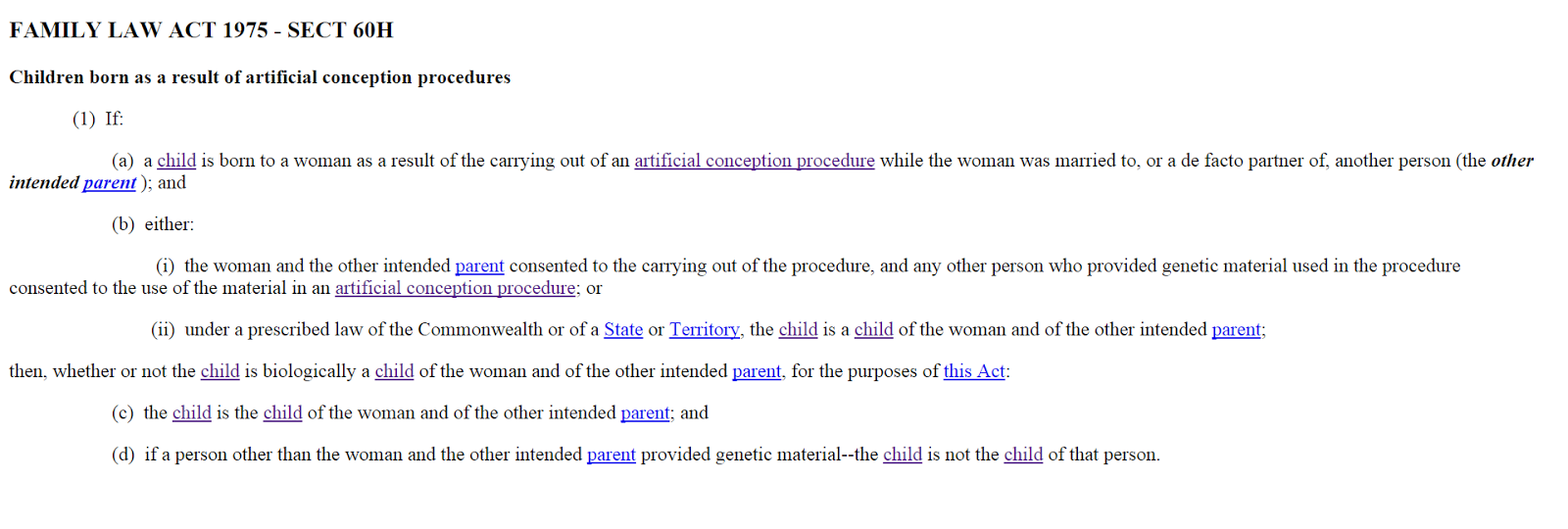Same-sex couples face significant discrimination in most societies. Central in that discrimination is the inability for same-sex couples to be legally married or easily begin a family together. Certainly, the Family Law Act 1975 (Cth) ("the Act"), which is the operative legislation for family law issues, was drafted hetero-normatively.
Section 60H of the Act provides the following:
Essentially, this means that if a woman, with the consent of her same-sex partner, becomes pregnant through altruistic sperm donation, then the woman's same-sex partner is the child's parent for the purposes of the Act and the donor is not. This is enabled by section 10C of the Family Relationships Act 1975 (SA).
It is important that the prospective co-parents and donor are on the same page about what the donor's role will be in the child's life. It is a good idea to record this as a 'parenting plan', setting out who will make decisions about the child, who the child will live with, and how much time anyone else will spend with anyone else. Parenting plans do not have legal force, but can help show what the intentions of all the parties was prior to the child being conceived.
Once the child is born, the parties can register the parenting plan with the Family Law Courts. Again, a registered parenting plan does not have legal force, but can be useful in evidencing the intentions of the parties.
Another option which the parties may consider is entering into a 'consent order'. A 'consent order' is a formal agreement setting out the child's care arrangements and which has the same legal force as any other court order. There is no need for the parties to attend a court hearing to have a consent order made.
If a consent order is made, it will be difficult for any party to the agreement to change it. This is because once an order of the court has been made, the court will only reopen the case if there has been a significant change in circumstances (for the obvious reason that it is not in the best interests of a child to be the subject of ongoing litigation).
It is important to understand that whilst a consent order can significantly reduce the risk of a party changing his or her mind about the agreement later on, it is not possible to fully prevent the donor from attempting to make an application to the court at a later stage. The reason for this is that parents of the child or anyone interested in the child's care, welfare, or development is able to apply to the court for parenting orders. Even if the donor is not a 'parent' of the child due to the operation of section 60H of the act, the donor is still an interested party.
If you are in a same-sex relationship and need further advice about the legalities of planning your family, please contact Swan Family Lawyers on 8221 7020, or at solicitor@swanfamilylawyers.com.au

